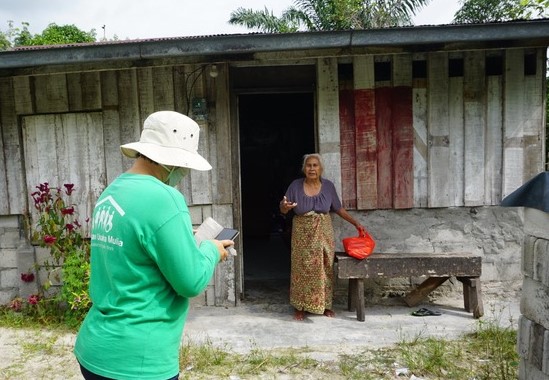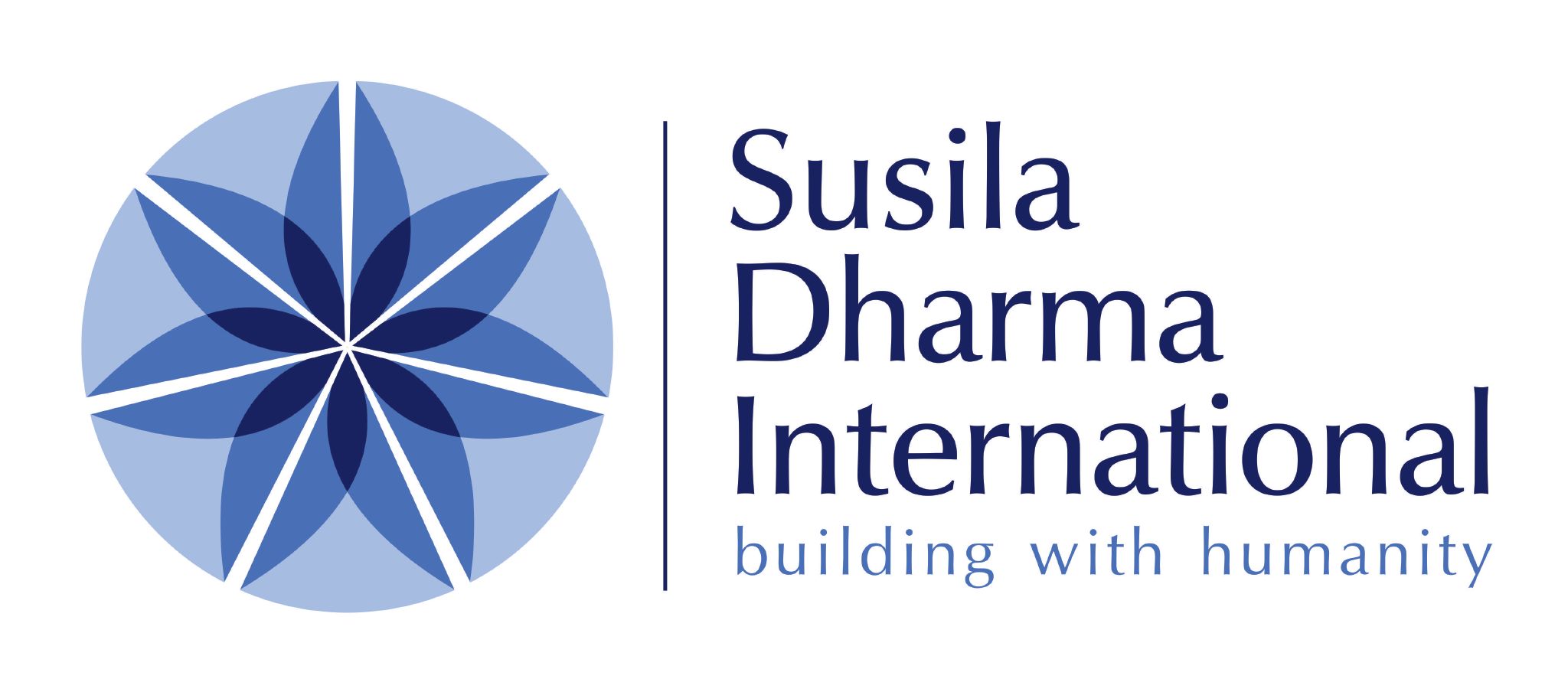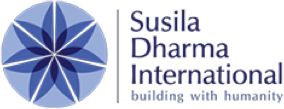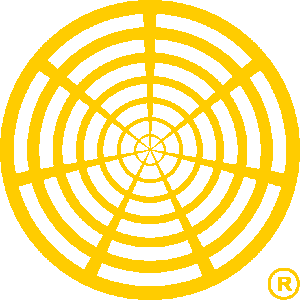Since the Indonesian government announced the first case of COVID-19 in early 2020, large-scale social restrictions were implemented in all 34 Indonesian provinces. These mandated people to continue their activities from home; only a few fields of works were able to continue with certain terms and conditions. Public facilities and accommodation including schools were closed until further notice and people’s movements restricted.
 In West Java and Central Kalimantan, where economic development and living standards are well below that of the national capital, almost 50% of the population live below the poverty line and have limited access to health and education. In everyday life, most people work as daily wagers. Even before the pandemic, they were already struggling to provide food for their family. This uncertain situation has cost many their jobs and their daily source of income.
In West Java and Central Kalimantan, where economic development and living standards are well below that of the national capital, almost 50% of the population live below the poverty line and have limited access to health and education. In everyday life, most people work as daily wagers. Even before the pandemic, they were already struggling to provide food for their family. This uncertain situation has cost many their jobs and their daily source of income.
Many workers cannot continue their work, tradespeople find it hard to sell their goods and the distribution has slowly reduced because of the limited access coming in and out of the city. People who work as daily wage earners in construction and palm oil farms have also been economically affected since the beginning, and many have lost their job. This unprecedented and dire financial situation and existing health issues coupled with the present COVID-19 situation continues to haunt many families.
Project activities
In close collaboration with the local government, community leaders, youth organisations and other NGOs, YUM is targeting families who had not yet received support from the government and were most in need. Thanks to generous donations from around the world, YUM has been able to continue to support the underprivileged people in both areas during this pandemic, when they need our support more than ever.
In Cipanas, West Java, YUM focused on providing support to the elderly, single parents, and daily wagers, who don’t have the luxury of working from home and who are already struggling to survive. The support provided to the communities was in the form of hygiene kits and basic food necessities.
 The COVID-19 relief packages included informational leaflets on COVID-19 prevention, masks, soaps, and food packages. These were distributed to more than 3,000 families.
The COVID-19 relief packages included informational leaflets on COVID-19 prevention, masks, soaps, and food packages. These were distributed to more than 3,000 families.
2,775 hygiene kits and 1,295 food packages were distributed. The hygiene kits consisted of 3 masks, 3 bars of soap, and 1 leaflet. The food packages consisted of 2kg rice, 1/2kg eggs, 1/2 liter cooking oil, 2 cans of sardines and 1 pack of biscuits.
In Bukit Batu, Kalimantan, our team focused on spreading information about the dangers of COVID-19 and how to prevent contagion. We used videos sent to various social media platforms as well as printing banners, posters and flyers. YUM’s first action was the placement of 200 posters and12 banners in 14 different locations. As many families do not have phones or television, the banners and posters provided information about COVID-19 and the steps needed to prevent being infected.
In Bukit Batu where there are 19,000 inhabitants, with one village situated remotely and needing travel by boat to get there, YUM has distributed more than 2,000 hygiene kits and 1,600 food packages. A further 577 families were helped to enter the government aid program which supports poor families with cash transfers for the next 3 months.
The government of Indonesia indicates that there are 24 million poor people living in Indonesia; however, there are a further 115 million living at the edge of this category. If they lose their means of income, they are likely to fall into the first category.
Therefore, next steps will be to focus on food security for families who have lost their income and are not receiving government support, especially pregnant or breastfeeding mothers and malnourished or stunted children.
With 1 out of 3 children stunted in Indonesia, the pandemic can make things worse. That’s why we must focus on food security and preventing a further increase in the number of stunted children in the near future.






Recent Comments